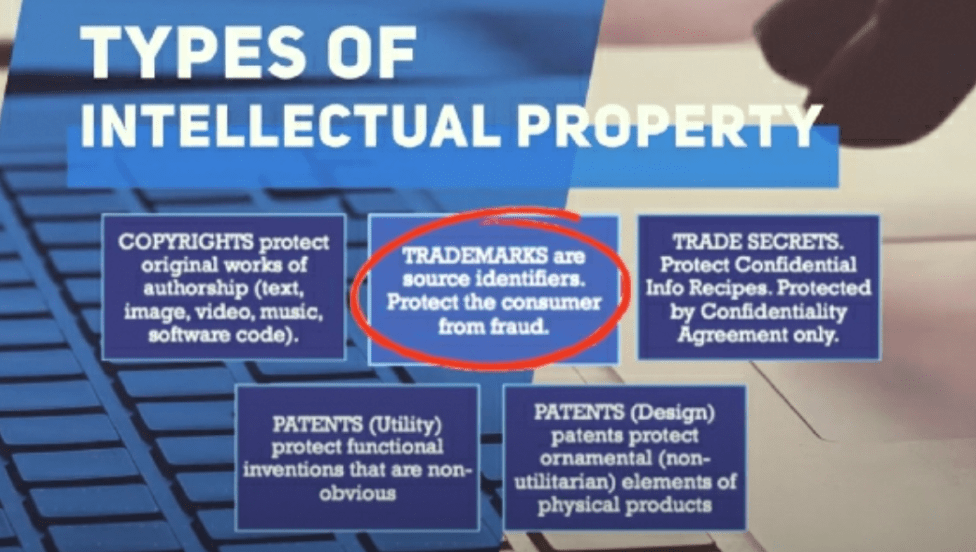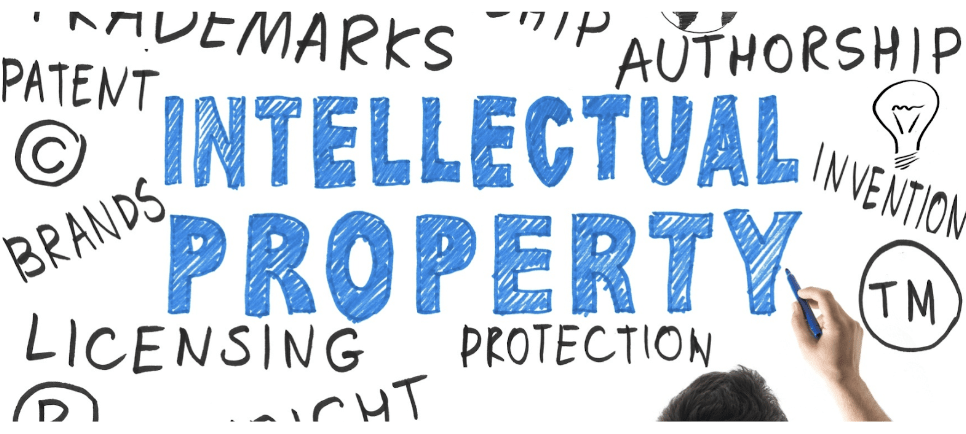When entrepreneurs, technology startups, inventors and media producers begin preparing legal and business due diligence in connection with a new venture, the subject of Intellectual property (IP) becomes a subject of great importance. When navigating the legal protection roadmap of a business, it is important for entrepreneurs and business owners to have working knowledge of intellectual property law, intellectual property assets, and best practices for intellectual property protection.
In the book Tip-Top Trademarks. Brand Protection Blueprint for Business, award winning attorney and business coach David Nima, Esq. provides a brief explanation of the various types of intellectual property that can be valuable to a business. In Tip-Top Trademarks, David writes “The goal of Chapter 1 is to help entrepreneurs gain working knowledge of the different types of intellectual property that may be protected in a business so the trademarks in a business can be correctly identified and set up for due diligence in later chapters.”
Types of Intellectual Property Assets in the United States
So let’s review the different types of intellectual property assets as they are discussed in Tip-Top Trademarks. There are four (4) main types of intellectual property categories recognized in the United States. They are:
- Trademarks
- Copyrights
- Patents
- Trade Secrets
Let’s provide a brief overview of each of these intellectual property assets:
Trademarks Explained for Entrepreneurs
“A trademark is the brand name, logo, slogan, or anything else usable to identify a company. Legally speaking, a trademark is a source identifier. The trademark tells the consumer what company is providing a product or service. The purpose or social policy behind trademark law is to protect consumers from fraud, not to incentivize innovation like copyright and patents.” (See Chapter 1, Section 1.1 of Tip-Top Trademarks E-Book). See also United States Patent and Trademark Office (USPTO) website at www.uspto.gov.
Copyrights Explained for Entrepreneurs
As discussed in Tip-Top Trademarks, “a copyright is a different type of intellectual property from trademarks.A copyright protects “original works of authorship” such as text, video, music, pictures, graphics, and even computer code.” (See Chapter 1, Section 1.2 of Tip-Top Trademarks E-Book). For more information on Copyright protection in the United States see this Copyright Basics memo from the United States Copyright Office.
Trade Secrets Explained for Entrepreneurs
Trade secrets are another type of intellectual property, different from copyrights and trademarks. The legal definition of trade secrets is information that has value by virtue of not being generally known and is subject to reasonable efforts to maintain its secrecy. In plain English, trade secret protection may apply to any confidential and valuable business information or data. (See Chapter 1, Section 1.3 of Tip-Top Trademarks E-Book).
Utility Patents Explained for Entrepreneurs
Legally speaking, utility patents protect a certain unique type of process or scheme invented that is new and useful. In plain English, utility patents often apply to newly designed, physical products that have some new feature of functionality resulting from the new design. Utility patents cover the product and its features, not the brand name, which is protected by trademark law. (See Chapter 1, Section 1.4 of Tip-Top Trademarks E-Book).
Design Patents Explained for Entrepreneurs
Design patents apply to the unique visual qualities of a manufactured item and protect the ornamental (non-useful) parts of a product or device. (See Chapter 1, Section 1.5 of Tip-Top Trademarks E-Book).
The Value of Intellectual Property Assets to Technology Startups
Understanding the different types of intellectual property assets is crucial for entrepreneurs, technology startups, inventors and media producers when preparing legal and business due diligence for their ventures. Protecting these assets through trademark, copyright, patent, or trade secret registration is important for securing a company’s brand identity, original works of authorship, confidential information, and unique inventions. As highlighted in Tip-Top Trademarks by David Nima, gaining working knowledge of intellectual property law and best practices for intellectual property protection can help entrepreneurs and business owners make informed decisions that protect their interests and help them achieve their business goals whether handling legal and business affairs in-house, or working with an experience intellectual property and startup attorney in Los Angeles.



